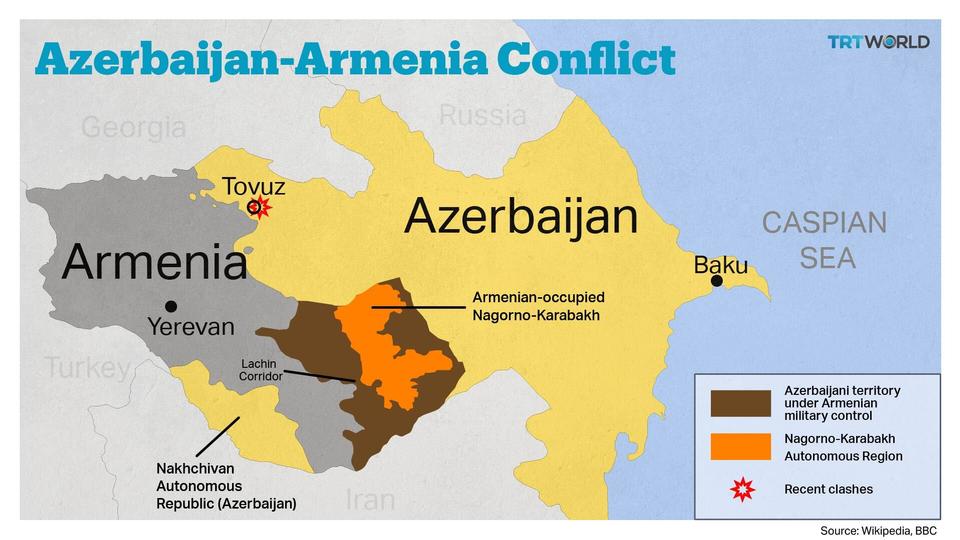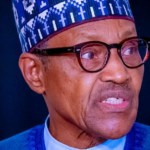Renewed tensions have risen over the past few weeks on the Azerbaijan-Armenia border as Turkey and Pakistan joined Azerbaijan in joint military exercises to emphasise their commitment to supporting it against Armenia in their lingering conflict over the mountainous Nagorno-Karabakh enclave in the South Caucasus between Eastern Europe and Western Asia.
Another intended recipient of the message behind the joint military exercises is Iran, being particularly committed to providing military support to Armenia against Azerbaijan. And it obviously got the message hence responded by conducting unprecedented military exercises on its border with Azerbaijan.
By the way, in international politics, a publicised military exercise is always meant to convey some subtle but serious warnings to the intended target. And depending on the situation, the intended target may condemn it, or react with a counter publicised military exercise, or simply feign indifference to save face and avert further escalation.
In addition to Iran, Russia has equally supported Armenia in the conflict even though, unlike Iran, it has obviously relented in recent years to the extent of appearing practically neutral, which partly explains the relative ease with which Azerbaijan, albeit supported by Israel and Turkey, managed to reclaim almost the entire enclave last year after 30 years under Armenian occupation.
Though the Nagorno-Karabakh enclave is an Azerbaijani territory, it’s largely populated by the Armenian ethnic minority. Also, though the conflict is more than a century old, it had been overtaken and contained by the Union of Soviet Socialist Republic’s annexation of both Azerbaijan and Armenia. It only began to resurface towards the collapse of the Soviet Union when the first ethnic conflict between Azeris and Armenian secessionists erupted in 1988.
Under the then steadily weakening Soviet Union, and shortly before its collapse, Azerbaijan declared its independence while the Armenian-dominated parliament of the then autonomous Nagorno-Karabakh voted for annexing the enclave to Armenia. Also, in a controversial referendum, which was boycotted by the Azeris, the Armenian ethnic minority voted for secession from Azerbaijan.
Following the eventual collapse of the Soviet Union in 1991, Armenia and Azerbaijan, among other former constituents of the Union, emerged as duly recognised sovereign states. However, a few months afterwards, war erupted between them and lasted until 1994 within which both ethnic Azeris and Armenians perpetrated ethnic cleansing against each other.
Now, as in every conflict with external dynamics, foreign governments motivated by their respective legitimate and illegitimate interests have been partly responsible for the protraction of the Armenia-Azerbaijan conflict over Nagorno-Karabakh.
All along, Russia, which rightly or wrongly considers itself the patron of Orthodox Christianity in the world, took sides in favour of Armenia, which is equally a predominantly Orthodox Christian country. Also, with its sheer economic and political influence in Armenia, Russia regards it as part of its exclusive sphere of influence.
On the other hand, Turkey’s support for Azerbaijan against Armenia is partly motivated by the historical hostilities between Turks and Armenians, which have always been the underlying dynamics behind the protracted tensions between Turkey and Armenia. Besides, Turkey has always considered itself the patron of the ethnic Azeris among other ethnicities across the South Caucasus who were historically Turks. Azerbaijan is also one of the sources of natural gas for energy-hungry Turkey.
On its part, Pakistan’s support for Azerbaijan against Armenia is basically in reciprocation for Azerbaijan’s support for Pakistan against India in their dispute over the disputed Kashmir region. Yet, its increased military involvement in Azerbaijan- Armenia conflict against the latter suggests a deliberate move to secure a firmer foothold in the region’s geopolitical power struggle.
Likewise, Iran is deeply involved in the conflict and has hugely supported Armenia militarily. Interestingly, though Iran views itself as the patron of the Shi’a in the world, it ironically supports Orthodox Christian Armenia against Azerbaijan, which is not only equally Shiite but the biggest Shiite country in the world for that matter, percentage-wise, for the Shi’a constitutes more than 85 per cent of its almost 10 million population. However, it does not recognise the spiritual supremacy of Iran’s Supreme Leader, while Iran, as it does everywhere, maintains a militia called Husainiyyoon in the country, which is loyal to the Supreme Leader in Tehran.
Anyway, though Iran is a Persian elite-dominated theocracy, ethnic minorities in the country constitute a sizeable percentage of its population. The Azeris constitute more than 20 per cent and may amount to 40 per cent when combined with other Turkic-origin ethnic minorities in the country. Also, while they are largely marginalised, a few individuals among them, who have discarded their ethnic origins and effectively turned Persian, have held important positions in the theocracy. The Supreme Leader, Ali Khamenei, is himself ethnically Azeri.
Iran has always been worried about the steady rise of a nationalist tendency among its ethnic minorities, especially the Azeris, who the regime suspects of harbouring secessionist tendency to form a separate entity or merge with their fellow Azeris across the border in Azerbaijan. It’s equally worried about the growing Turkish influence among the Azeris and other Turkic-origin ethnic minorities in Iran, which Turkey may manipulate to politically blackmail it.
Meanwhile, Israel, which already has diplomatic relations with Azerbaijan, took advantage of the situation supporting Azerbaijan with advanced weapons and intelligence thereby achieving its main objective i.e. securing a foothold in Azerbaijan to run its subversive operations against Iran just across the border. Israel has been desperate to secure as many military footholds as possible across Iran’s borders to counter its similar footholds across Lebanon-Israel and Syria-Israel borders.

 Join Daily Trust WhatsApp Community For Quick Access To News and Happenings Around You.
Join Daily Trust WhatsApp Community For Quick Access To News and Happenings Around You.


